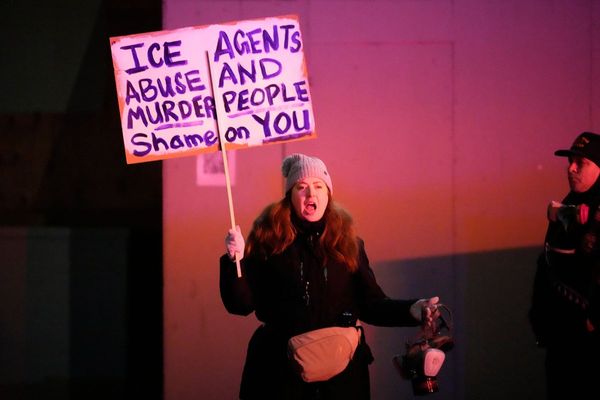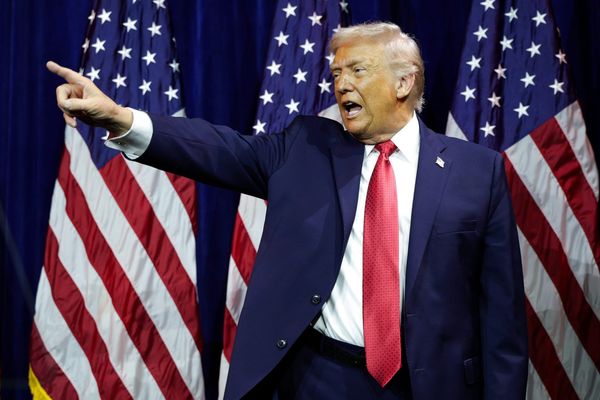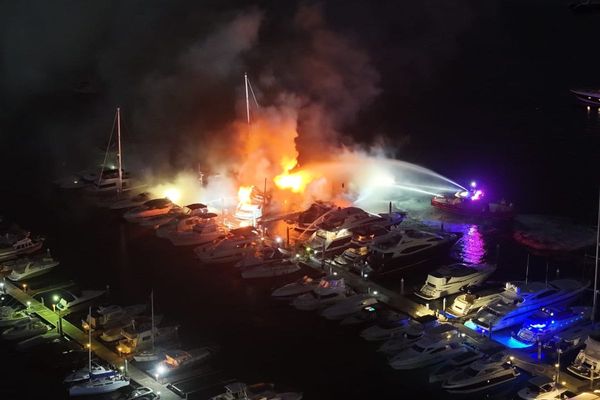
Film sets are like families, says Hirokazu Kore-eda. They are loose social structures, nominally hierarchical and ideally geared towards a common goal. While the Japanese director accepts that this puts him in the role of the father, he disputes the suggestion that this automatically makes him the boss. He supposes the cast are the children – often literally so. “The time we all spend together,” he says, “is very intense. The cast and crew become very important to me.” But at the end of each shoot, the unit collapses, the family members disperse and all that’s left are memories, mementoes and of course the actual movie itself.
This idea of the makeshift, sometimes impermanent household is a fascination for Kore-eda, who increasingly lives his life on the road, moving between film shoots and festivals. In the course of a 30-year career, he has cast his Japanese families in a variety of roles: as a band of thieves (the Palme d’Or-winning Shoplifters) and as a happy accident (Like Father, Like Son); an invisible society (Nobody Knows) and a triumph of magical thinking (I Wish). At best, he feels, the family unit provides a nurturing seedbed, or crucial social glue. At worst it’s a bubble, a prison, a trap. “It depends on the family,” he says. “But it also depends on the state of the world.”
His latest film, perhaps tellingly, feels darker and angrier than most of his previous work. Monster, developed with the writer Yuji Sakamoto, structures itself like a dysfunctional Venn diagram in which the home, the school and the local community barely seem to intersect. Events that occur in one sphere run the risk of being wildly misconstrued in the others, complicated by social protocols and amplified by social media. The schoolboys at the film’s centre – Minato and Yori – might be enemies or the best of friends. The teacher might be a bully or a decent man who’s been scapegoated. Everyone’s lashing out, covering their own backs, regarding everyone else as the monster. In its impactful, elaborate fashion, Monster tells us that there are at least three sides to every story and that whatever passes for truth is provisional and subjective.
We meet in the wings of the Cannes film festival, in an office suite off the Croisette, away from the hurly-burly. This is Kore-eda’s ninth visit to Cannes, his seventh time playing in the main competition. It’s familiar terrain, a happy hunting ground. When he arrives, people say: “Welcome back.” He imagines they’ve all been waiting for him inside the Lumière theatre. “But it’s still a competition. You’re being scored at all times. You’re being ranked and judged. And I accept all of that. It makes me feel I’m connected to 130 years of cinema history. But it also means Cannes is not necessarily a comfortable place, and it’s certainly not a peaceful place. So no, it’s not home.” He smiles as if mentally replaying what he just said. “Or I should say, it’s not a home you’d feel particularly comfortable in.”
Kore-eda began developing Monster in December 2018, fine-tuning the script over several years before eventually shooting in the summer of 2022. The pandemic provided the background noise. He thinks that maybe it filtered through to the story as well. “I started out wanting to make a film about what I saw happening in the wider culture – not just in Japan, but around the world. The sense of disconnect and miscommunication. The sense that people were shutting down, locking down to the degree where they were starting to see their immediate neighbours as monsters. And over the past five years, partly as a result of Covid, I feel this trend has only accelerated. We see it especially in social media. People in their bubbles only see a small part of the picture and as a result end up distorting the issue. That’s what the film is about. It’s my criticism of that world.”
In Monster, Minato and Yori are at least occasionally able to escape their bubbles. They create a temporary haven inside a disused railway carriage – a symbol of freedom and mobility, now left to rust in the woods. Kore-eda suspects that such sanctuaries are rare. There are not many places to run to; we’re being watched at all times. “So I think children have it harder these days. They are more supervised and oppressed.”
The director, now 61, says he has witnessed this first-hand, as the father of a now teenage daughter. “About 10 years ago,” he says, “I was looking to put her into a nursery. And there was one school that had cameras everywhere, so parents were able to watch their children at all times. Which I’m sure is reassuring for the parents. But for the teachers and children, it’s really not so nice. Children need their own space to develop. They need their own space to escape to.” He shrugs. “So I didn’t choose that school. I remember thinking, ‘If you want to keep an eye on your child the whole time, maybe just stay at home with your child.’”
Kore-eda came to fatherhood comparatively late. He had to learn on the job, scripting the role from scratch, because he was brought up by women: his mum and two sisters. His dad was around, but he was like a background artist. “Yeah, my father was a weaker presence in terms of everything. The money he made. The time that he spent. The conversations we had.” Kore-eda smiles thinly. “I sometimes joke that I didn’t know who he was.”
The trouble, he realises, was that his dad was a wreck; borderline alcoholic and traumatised by his past. The man had fought in Manchuria with the Japanese army. He’d been captured by the Russians and made a prisoner-of-war. “When my dad got to drinking, he would start mumbling about the war, or about his postwar experiences when he spent three years in Siberia, in a forced-labour camp. He was working in minus-40-degree temperatures. It wouldn’t be allowed today.”
The director thinks for a moment. “He’d go on and on about his experiences there. Having to dig in the frozen ground. Waking up in the morning to find his friends beside him dead from malnutrition. And how he’d then have to go out and bury them. And this really wasn’t something I wanted to hear as a child. I think he needed to talk to someone. I should have listened to him more.”
Monster, for all its merits, may turn out to be an outlier on Kore-eda’s CV, the cinematic equivalent of a director’s sore thumb. It’s the first film he hasn’t written since his 1995 debut, Maborosi. It also breaks a recent trend of foreign language productions, which has found Kore-eda working alongside a translator to make the South Korean drama Broker and the French family saga The Truth. These adventures were fun, he admits, but it is also nice to come home.
“Making a film is always a challenge,” he says. “But making films in a different culture, a different language, and spending six months by myself, living in a hotel – that’s a different level of challenge.”
In painting his lovely, knotty, contemplative family portraits, Kore-eda is tangentially revealing a little of his own story as well. Sometimes these dramas are fabulous fabrications. At other times, however, they veer close to home. The director now admits that 2008’s Still Walking was largely autobiographical – an anguished, grief-struck domestic drama that was prompted in part by his mother’s death. He now has an idea for a film set in Manchuria, where his father was stationed. Actually, he says, he has been working on this for a number of years and can’t seem to let it go. The tale is his white whale, the monster under his bed. Every household has a monster. Maybe this one is his.
The director shrugs, unsure. He says: “Well, it’s a big subject, of course, and it touches on my own family. Perhaps finally, I am ready to pay attention to it now.”
• Monster is out on Friday
• This article was amended on 11 March 2024. An earlier version said that Hirokazu Kore-eda’s debut film Maborosi was released in 2005 instead of 1995.







